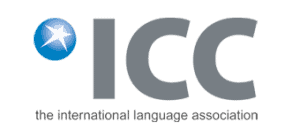Developing Mediation Strategies as an Important Step towards Developing Plurilingual Competence
Nancy Kontomitrou (Greece)
Abstract
The main goal of this workshop is to underline the importance of developing mediation strategies presented in the Common European Framework of Reference for Languages (2001) and its Companion Volume (2020), for developing plurilingual competence.
Participants in this workshop will have the opportunity to discuss theoretical and practical aspects of including mediation strategies, such as “Strategies to explain a new concept” (Council of Europe 2020: 118) and “Strategies to simplify a text” (ibid.: 121), in their lesson planning and in developing teaching materials aiming at the development of plurilingual competence of students of foreign languages.
In this context, participants in this workshop will first have the opportunity to discuss ways, according to which mediation strategies can be developed in the language teaching and learning process to a high degree. The next step of this workshop is to present examples of teaching materials focusing on developing mediation strategies and to discuss the changes that can be made in the development of teaching materials when foreign language teachers focus on the development of mediation strategies. Finally, the importance of integrating mediation strategies in alternative assessment methods will be discussed and examples of materials for self-assessment will be presented.
This workshop ends with the conclusion that taking into consideration the positive results of including mediation strategies in foreign language teaching will also have positive results in developing pluricultural competence and in considering different dimensions related to Plurilingualism in teaching foreign languages.
References:
Council of Europe (2001). Common European Framework of Reference for Languages: Learning, teaching, assessment. Cambridge University Press, Strasbourg. Available at www.coe.int/lang-cefr
Council of Europe (2020). Common European Framework of Reference for Languages: Learning, teaching, assessment – Companion volume, Council of Europe Publishing, Strasbourg. Available at www.coe.int/lang-cefr
Bio
Dr. Athanasia (Nancy) Kontomitrou is an Associate Lecturer at the Department of German Language and Literature of the National and Kapodistrian University of Athens. She holds a Ph.D. in Teaching German as a Foreign Language from the National and Kapodistrian University of Athens. She is also a member of the scientific team for the development of tests for the State Certificate of Language Proficiency (KPG) in the German Language. Her academic interests include foreign language teaching and learning, development of teaching materials, assessing foreign language competence and development and evaluation of language tests.
http://www.gs.uoa.gr/kontomhtroy.html
http://en.gs.uoa.gr/teaching-staff/kontomitrou-a.html

